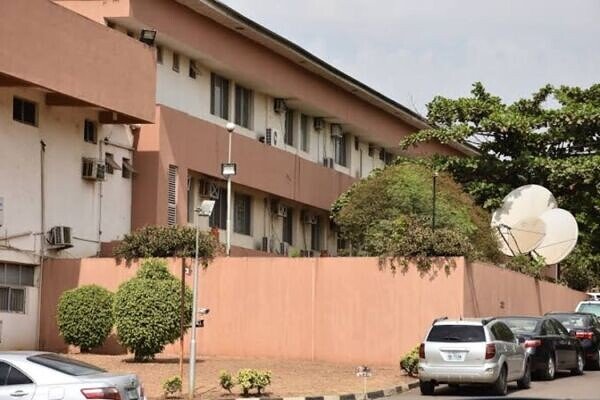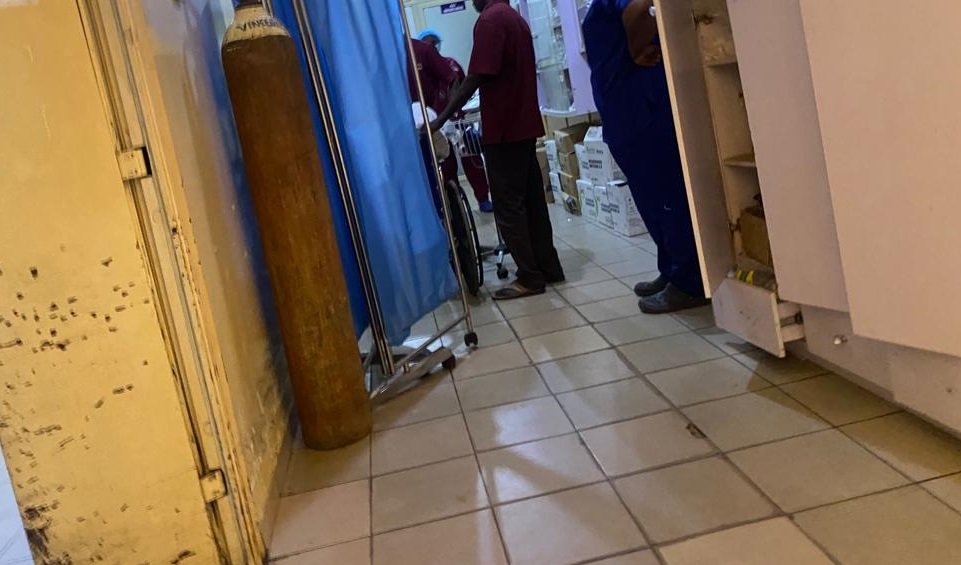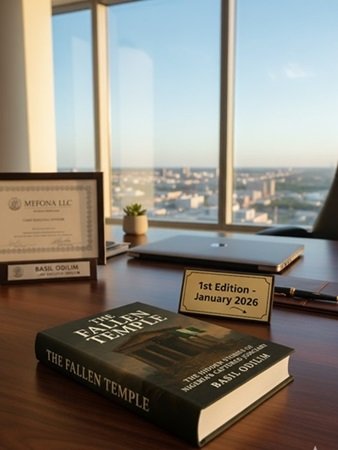A Nightmare at Garki Hospital: A Shocking Experience of Neglect, Filth, and Intimidation

- PublishedMarch 10, 2025
Basil Odilim
Ordinarily, I wouldn’t spend my time writing about an experience like this. But in a country where accountability is rare and impunity reigns, silence is not an option. Nigeria’s healthcare system is already in crisis, and hospitals like Garki Hospital in Abuja are worsening the situation with filthy environments, incompetent service, and unethical policies that exploit patients rather than heal them.
My experience at Garki Hospital between Friday, March 7, 2025, and Monday, March 10, 2025, was nothing short of a nightmare.
An Emergency Visit Gone Wrong
At 3 a.m. on March 7, 2025, my son began vomiting violently—three times within a minute. Given the urgency, I rushed him to the nearest hospital, which happened to be Garki Hospital, instead of my usual hospital, Zankli, which was farther away at that hour.

From the moment we arrived, the hospital proved to be an ordeal.
A Filthy Environment: The hospital was shockingly unclean. The toilets were dirty and lacked even basic toilet paper. I had to beg a stranger for tissue paper so my son could use the restroom.
Unprepared and Ill-Equipped Staff: After paying about ₦30,000 for lab tests, the hospital informed me that they did not have the correct needle to draw my son’s blood. I was asked to go outside and buy one from a nearby pharmacy. The hospital pharmacy also lacked the prescribed injection solution, forcing me to buy that as well.
Unnecessary Delays and Inefficiencies:
– After being told to return for my son’s lab test results, I spent two hours searching different labs within the hospital because no one could locate them.
– The doctor insisted that we would be the ones to go and check for the results and have them uploaded into the hospital system for him to look at them.
By the time we finally got the treatment, it was a battle of endurance, not healthcare.
A Second Visit: More Problems, More Exploitation
Despite being discharged, my son’s condition worsened within hours. He began vomiting extensively, running a dangerously high fever, forcing me to return to the hospital. This time, they insisted he needed admission for close monitoring.
At this point, I personally inspected the hospital’s wards and was horrified. The rooms were filthy, unhygienic, and unfit for any patient, let alone a child. Since the VIP rooms were full, I requested home care but was told that was not an option.
Realizing that keeping my son in that unhygienic environment could worsen his condition, I called a consultant surgeon at the National Hospital, Abuja, who advised me to bring my son to their Children’s Emergency Unit.
Upon arrival, we had to wait, but when the doctors finally saw him, they made a shocking revelation:
– His condition did not warrant admission and could be treated at home with simple medication—the same hospital that pushed for admission had exaggerated the need.
– The doctor prescribed oral ondansetron (4mg) to stop vomiting and paracetamol for fever management—a far more practical and cost-effective treatment than the unnecessary hospital stay Garki Hospital recommended.
Following the correct treatment, my son improved significantly without the need for prolonged hospitalization or excessive costs.
The Final Straw: Being Charged ₦3,000 to Access Test Results
By March 10, 2025, I returned to Garki Hospital to collect the culture test result, which we were told would be ready. As expected, it took a long struggle through the crowd to finally locate it.
Then came another outrageous policy:
– I was informed that to retrieve my son’s test result, I had to pay an additional ₦3,000.
– When I asked whether there was an alternative, the hospital insisted payment was mandatory.
At this point, I decided to escalate the issue to the Medical Director’s office. Upon arrival, I was asked if I had an appointment. I laughed and responded, “I didn’t know getting a test result required an appointment as if I were visiting the President’s office.”
Before I could say more, a man—who appeared to be from hospital administration—rudely intervened, saying: “Yes, you must pay the ₦3,000. That is the policy.”
I calmly stated that I have visited many hospitals in my lifetime and never before had I been charged for simply collecting a test result—a result that could have easily been sent via email or SMS, saving unnecessary costs and exposure to hospital infections.
I asked, but I thought that this is a hospital constructed under a public-private partnership,
His response? More arrogance and intimidation.
– He snapped, asking me if I have a copy of the hospital’s contract to say that, making claims about how it should operate.
When I insisted on writing about my experience, he became openly hostile, threatening me with a defamation lawsuit and telling me that I was nobody to do that. Trying to force me out, I refused, he then called security to force me out of the hospital. Aware that physically doing that would amount to serious violation of my rights, the young security officer didn’t act.
Garki Hospital’s Practices Violate Nigerian Laws
Garki Hospital’s unsanitary conditions, lack of proper medical supplies, unnecessary hospital admissions, hidden charges, and threats against patients violate multiple Nigerian laws:
- Federal Competition and Consumer Protection Act (FCCPA), 2018
– Protects patients from exploitation, misleading practices, and unfair charges.
– Garki Hospital’s ₦3,000 fee for a test result seems to be an exploitative, hidden cost that is not transparently disclosed.
- National Health Act, 2014
– Mandates hospitals to maintain hygiene and provide quality healthcare.
– The filthy environment and lack of basic medical supplies indicate a clear violation of this law.
- Medical and Dental Practitioners Act.
– Ensures ethical medical practice.
– Pressuring patients into unnecessary hospital admissions is unethical and exploitative.
- Criminal Code Act (Section 397) – Intimidation and Threats
– The threats of a defamation lawsuit to silence my complaints amount to intimidation, which is a criminal offense.
Rather than being ashamed of its failures, Garki Hospital threatens patients like me into silence. But I will not be silenced. I intend to:
– Publish this article widely.
– Share it on national television.
– Send copies to relevant regulatory bodies.
If the hospital’s administration truly believes my firsthand account is defamatory, then I challenge them to take me to court. I will gladly provide evidence to prove every single fact stated here.
In a civilized nation, a hospital like Garki Hospital would have been shut down for such filthy conditions and unethical medical practices. Until that happens, I will continue to expose institutions like this that exploit Nigerian citizens under the guise of healthcare.








